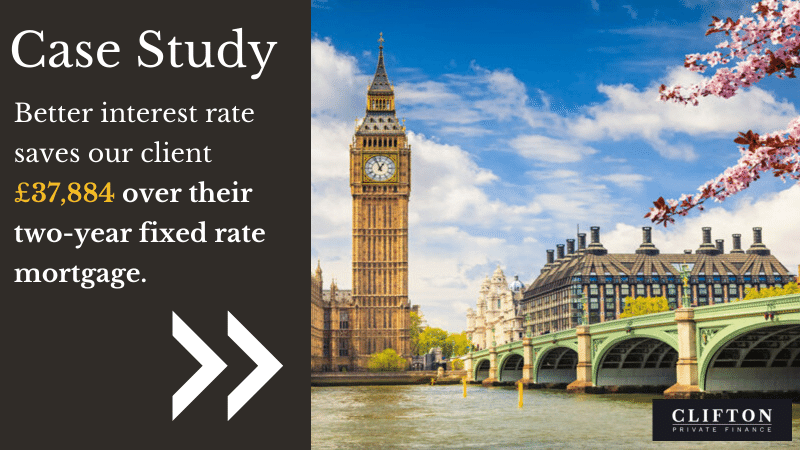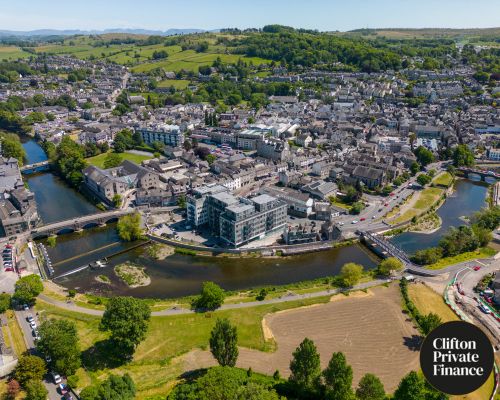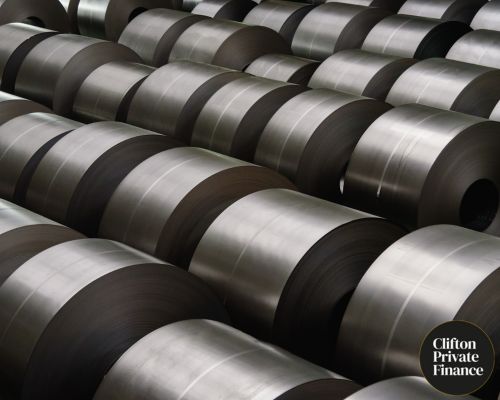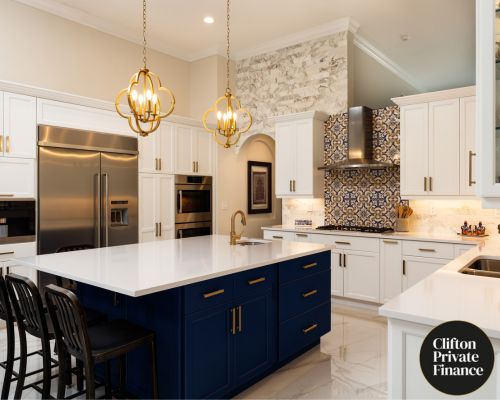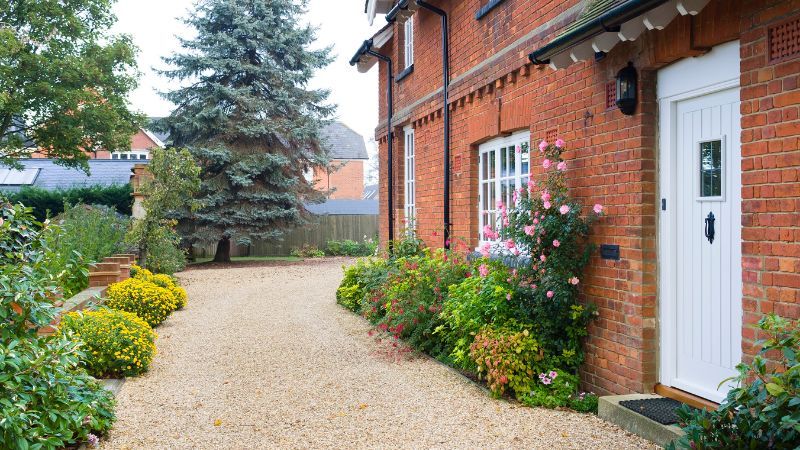Categories
What is a Green Mortgage, and how do they work?
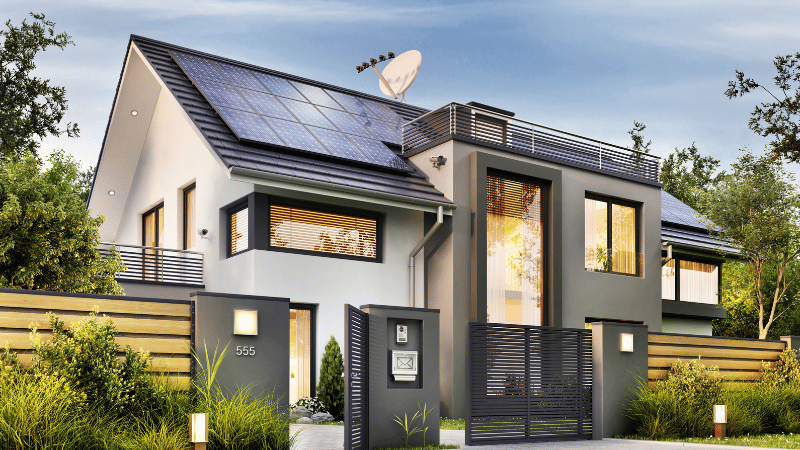
A green mortgage is a specific mortgage product for green properties, i.e., properties with an EPC rating of B or higher.
They're usually a bit cheaper than standard mortgages because energy-efficient homes can be more attractive to lend against from a bank's perspective.
The past year saw energy bills reaching new heights, and with that increase, more homeowners are now considering green mortgages – but just how much could you save?
You may be looking at ways to make your home more energy efficient in 2023 just to keep your bills down - could you qualify for a green mortgage while you're at it?
Despite wholesale gas prices being forecasted to fall in 2023, they're still higher than before the ongoing energy crisis.
So by qualifying for a green mortgage, you might be able to:
- Get a cheaper mortgage
- Save on your energy bills
- And help the planet
Skip to:
Why are banks offering green mortgages?
What does it costs to make a home green?
How can you get a green mortgage?

What is a green mortgage?
Put simply; green mortgages are discounted mortgages specifically for eco-friendly homes.
Having a green mortgage means being rewarded for making energy-efficient improvements to your home, and you may qualify already if your home meets energy efficiency standards.
How does a green mortgage work?
Green mortgages work in the same way as other types of mortgages but are specifically designed for properties that are energy efficient or have renewable energy sources.
They often come with lower interest rates or other incentives, making them attractive to those remortgaging or buying a new eco-friendly home.
Related: NEWS: Are mortgage rates going down?
Why are banks offering green mortgages?
For lenders to offer preferential mortgage rates, it must make sense from their perspective - green homes need to represent a lower risk, or there is no logical incentive for banks to offer better rates.
Fortunately, green homes are more attractive to lenders in three key ways:

Green homes are cheaper to run because they have lower utility bills.
In other words, if you're spending less on your energy bills, you're more likely to be able to keep up with your mortgage repayments – meaning you're less likely to default on your mortgage. This is great for lenders who want you to keep up with your repayments.

Green homes are more valuable than 'brown' homes.
There’s a term in the property industry known as ‘green value’, which refers to energy-efficient homes. Green homes can have an inflated value compared to less energy-efficient homes, as they appeal more to future buyers and be quicker to sell.
And the effects of ‘green value’ are likely to accelerate with the continuation of climate change, legislation being enforced across the UK, and energy prices remaining high in 2023.
Mortgages can last 25 years, 30, or longer, so your lender's long-term investment in your home is protected by its green efficiency - they can use that value to offer you a cheaper mortgage.

Government incentives for green homes
In their Heat and Buildings Strategy set out in October 2021, the Government announced a consultation to incentivise UK mortgage lenders to disclose the energy performance figures of their entire property portfolios.
They want all mortgage lenders to be hitting an average EPC band of C by 2030 across their entire property portfolios to promote eco-friendly homes and sustainability.
What does this mean for your mortgage?
This means that banks and lenders have become more likely to prioritise green home mortgages with higher EPC bands to boost their overall portfolio rating in time for 2030 - so they offer discounts.
Case Study - Read our case study below on how we helped our client secure a large mortgage for their dream Surrey home.

How much cheaper is a green mortgage?
Savings vary based on the mortgage lender you go with, your EPC score, and many other factors.
But typically, you could get a lower mortgage rate with a green home mortgage compared to a standard mortgage.
Some banks offer incentives or cashback rewards in addition to or instead of a lower rate, but reduced interest is the most common benefit.
To compare the best green mortgages available at any one time, it's worth speaking to a mortgage broker who has access to deals across the entire market.
Related: Should you get a fixed or tracker mortgage in 2023?
How do I qualify for a green home loan?
To qualify for a green mortgage, your property typically must have an Energy Performance Certificate (EPC) rating of B or higher, and your lender may require an assessment of your property's energy efficiency or renewable energy features.
If your property already has a great energy efficiency rating - you should be good to go when you next remortgage (or if you're buying a new sustainable home).
If your home's energy efficiency rating is way off an A or B, you might need to invest considerable funds to make your home energy efficient.

If you're buying a new property, some lenders will still grant you a green mortgage on the condition that you improve your EPC rating within a certain timeframe.
Your property's latest energy certificate can be viewed online, and your certificate will even tell you some of the best ways to improve your home’s energy rating and the potential score you could reach through the last surveyor’s recommendations.
Here are some of the most common and cost-effective energy improvements to make in your home:
- Draught proofing your property
- Installing low-energy lighting
- Insulating your loft and/or walls or adding to your existing insulation
- Install a condensing boiler
- Install double-glazed windows
Need a refresher on how much you can borrow? Use our borrowing calculator:

What does it cost to make a home green?
The cost of making a home green in the UK can vary depending on the size and condition of your property and what's already been done.
While the improvements above can make a significant difference, there are more expensive and comprehensive measures that work too, such as installing renewable energy systems or upgrading the heating and hot water systems.
For example, the average cost of installing solar panels in the UK ranges from £4,000 to £8,000. And a full retrofit of a home can cost anywhere from £10,000 to £30,000.

Before it ended, the Green Home Grants covered two-thirds of the cost of improvements to your home – up to £5000. Despite this, there are still options out there for financing energy efficacy improvements.
In its original form, the Green Deal scheme was also government funded – however, in 2015, this was changed.
However, private investors still offer loans that are 'Green Deal Certified' by the government, through which you can finance energy-saving improvements for your home.
In short, Green Deal loans can fund energy efficiency measures – double glazing, insulation, and renewable energies such as solar panels to name a few. Homeowners can then repay the loan with savings made on their energy bills.
Related: My house has gone up in value - can I remortgage?
Case Study - Read our case study below on how we helped our first time buyer client get a quick mortgage despite their poor credit history.
Do green homes sell faster?
One of the benefits of a green home is that they can be more attractive to prospective buyers for the savings they could make on their energy bills and mortgage, so they can be easier to sell.
It's worth noting that the green mortgage market is still relatively small in the UK, but it's growing, and more lenders have started to offer green mortgages in the past year.
For landlords, investing in an already green BTL (Buy-to-let) property seems like a wise choice in 2023, considering the government’s target of an average EPC rating of C for properties by 2025. Otherwise, BTL property owners could be facing thousands on property upgrades.

With an influx of landlords and property owners scrambling for green mortgages and green homes, we could see homes with these improvements outsell 'brown homes'.
Additionally, buyers are becoming more environmentally conscious and tend to prefer energy-efficient homes with lower utility costs.
The government's green initiatives have paved the way and set a precedent that having a green home should be attractive to buyers, which might also drive the trend of green homes selling faster in the near future.
Related: Landlords Are Improving EPC on Rental Properties - Here's Why
How do I apply for a green mortgage?
When you apply for your mortgage, you’ll need to provide your mortgage lender with your EPC certificate to prove its energy rating.
The lender that offers you the most savings depends on your mortgage situation and the deals available at the time. Whether you’re remortgaging, buying for the first time, earning in a foreign currency, or looking for an expat mortgage on a UK home, the best option for you could vary.
A green mortgage adviser at Clifton Private Finance is tuned in to the latest eco mortgage deals available across the entire mortgage range - from high-street lenders to private banks and specialist mortgage lenders.
We can advise you on what type of mortgage product you need and who to borrow from. We can also guide you through the entire process - from your initial application to negotiating the best rates available.
Case Study - The case study below showcases how a better interest rate can save you thousands on your mortgage throughout its term.
Our most popular posts:
Give us a call
To speak to a broker today about how we can secure your property finance, call us on the number below, or complete our contact form and we’ll get back to you.


